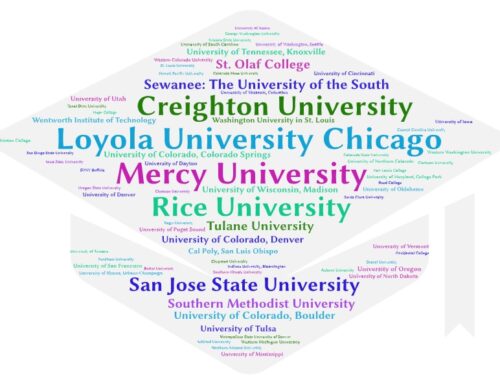The college admissions process has always been stressful: after spending 3+ years working to get the best grades possible, participating in activities, pursuing leadership positions and other achievements, and studying for standardized tests, students have to figure out how to communicate all of their accomplishments to people they may have never met, people who are going to make big decisions about those students’ futures. On top of that, students have to wait weeks or months to receive those decisions.
This year, due to the COVID-19 pandemic, the anxiety induced by the college admissions process has ratcheted up a notch. In the spring, ACT and SAT test administrations were canceled, and students who’d been preparing for these tests had to wait months to take them. Plans to visit colleges over spring and summer breaks were curtailed when campuses shut down. Across the country, students were forced to make an immediate transition to remote learning. Sports, activities, summer programs, jobs, and internships — all of which students were planning to include in their applications — didn’t occur.
Many high school seniors (and their parents) are wondering and worrying about how colleges will evaluate them in light of all the changes COVID-19 has caused. It’s important to keep in mind that the pandemic has affected everyone (albeit some more than others), and college admissions counselors are going to be understanding of that when they read applications. The fact that so many colleges have become test-optional for the Class of 2021 (as described in this blog post) is just one example of how colleges are adapting their admissions processes due to the current situation.
Another example is “Care Counts in a Crisis: College Admissions Deans Respond to COVID-19.” This statement, developed by the Harvard Graduate School of Education in collaboration with leaders of admissions offices, outlines colleges’ expectations and values during this time. These values are listed below, along with quotes from the document that further explain each one:
- Self-care: “We . . . recognize that this time is stressful and demanding for a wide range of students for many different reasons. We encourage all students to be gentle with themselves during this time.”
- Academic work: “Your academic engagement and work during this time matters to us, but given the circumstances of many families, we recognize that you may face obstacles to academic work. We will assess your academic achievements in the context of these obstacles.”
- Service and contributions to others: “We value contributions to one’s communities for those who are in a position to provide these contributions . . . No student will be disadvantaged during this time who is not in a position to provide these contributions.”
- Family contributions: “We view substantial family contributions as very important, and we encourage students to report them in their applications.”
- Extracurricular and summer activities: “No student will be disadvantaged for not engaging in extracurricular activities. We also understand that many plans for summer have been impacted by this pandemic, and students will not be disadvantaged for lost possibilities for involvement.”
To date, admissions leaders at nearly 370 colleges have signed this statement. You can read the full document and the list of colleges that have endorsed it here.






